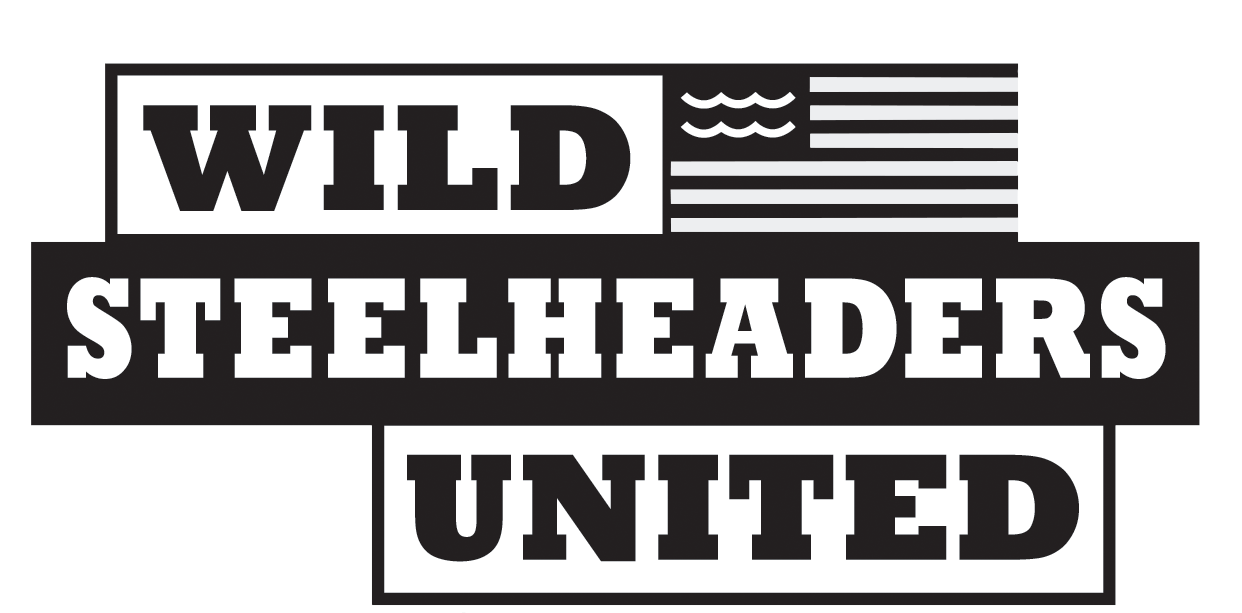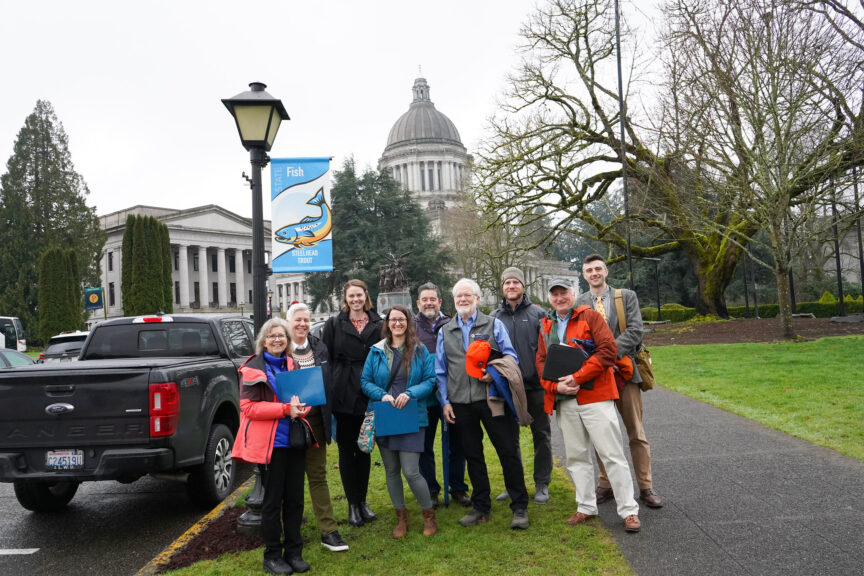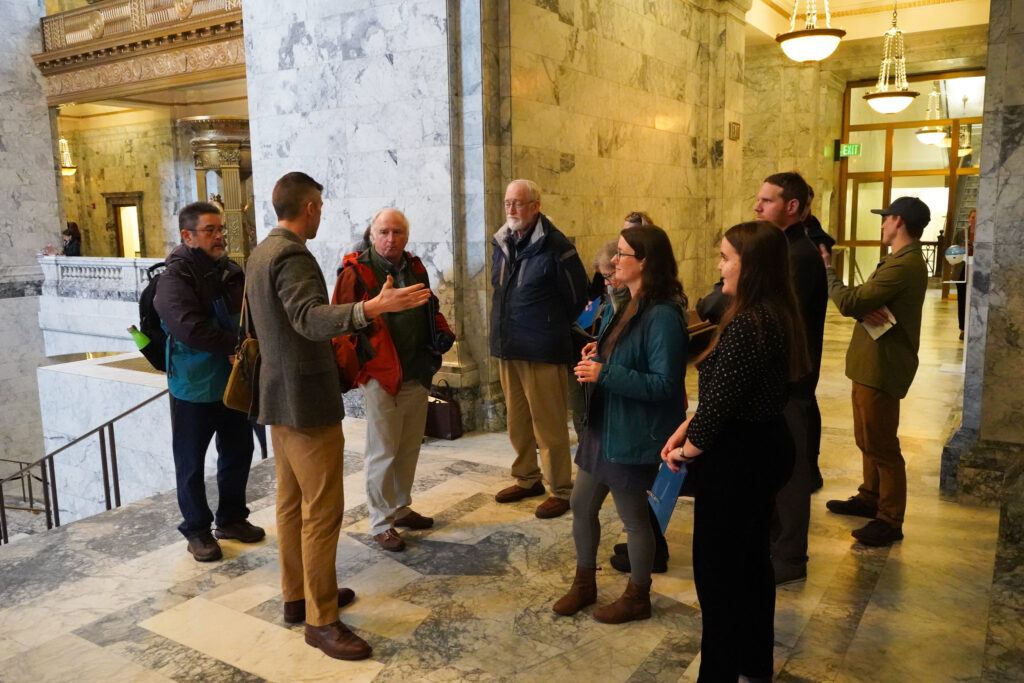
Our recap of Washington’s supplemental session and what this means for wild steelhead
The 2024 Washington State Legislative session was voted closed on Thursday, March 7, wrapping up this year’s policy making. This was a non-budget year in the Washington biannual budget legislative cycle, making for a fast paced and policy-oriented “short session” in Olympia.
The Governor signed the budget on March 29 and did not exercise veto power over any of our priorities.
Trout Unlimited was hard at work this session promoting conservation-oriented policy and funding items critical for our steelhead and other coldwater fish populations. So let’s go over some of the big issues discussed in this year’s action.
Safety Funding
In the last six months, there have been two tragic deaths of WDFW field staff doing fish monitoring work. As a result, WDFW put together an emergency package to fund a re-evaluation and overhaul of their field staff safety protocols. Obviously, this is critical to keep folks safe, but also to ensure the ability of the Agency to continue its critical fish monitoring work. Only receiving partial funding in the Governor’s proposed budget to the legislature, we worked with state legislative leads and the Department to secure full funding for this important budget item.
Coastal Salmonid Management funding
With the safety funding package identified as the top priority of WDFW this session, this impacted other priorities in their budget, including a $3.2M monitoring package for coastal steelhead and salmon. This session’s request builds on a larger and steelhead-specific version of a package that was discussed but not included in the agency’s biennium request for the 2023 session. Unfortunately, we thought this year’s limited package did not prioritize recovery of the steelhead stocks in a way that provides meaningful recovery and fishing opportunities, so we did not support this year’s budget request.
We hope in the 2025-2027 biennium, WDFW will consider forward-thinking reforms to improve steelhead management on the coast and fulfill WDFW obligations spelled out in the 2008 Statewide Steelhead Management Plan.
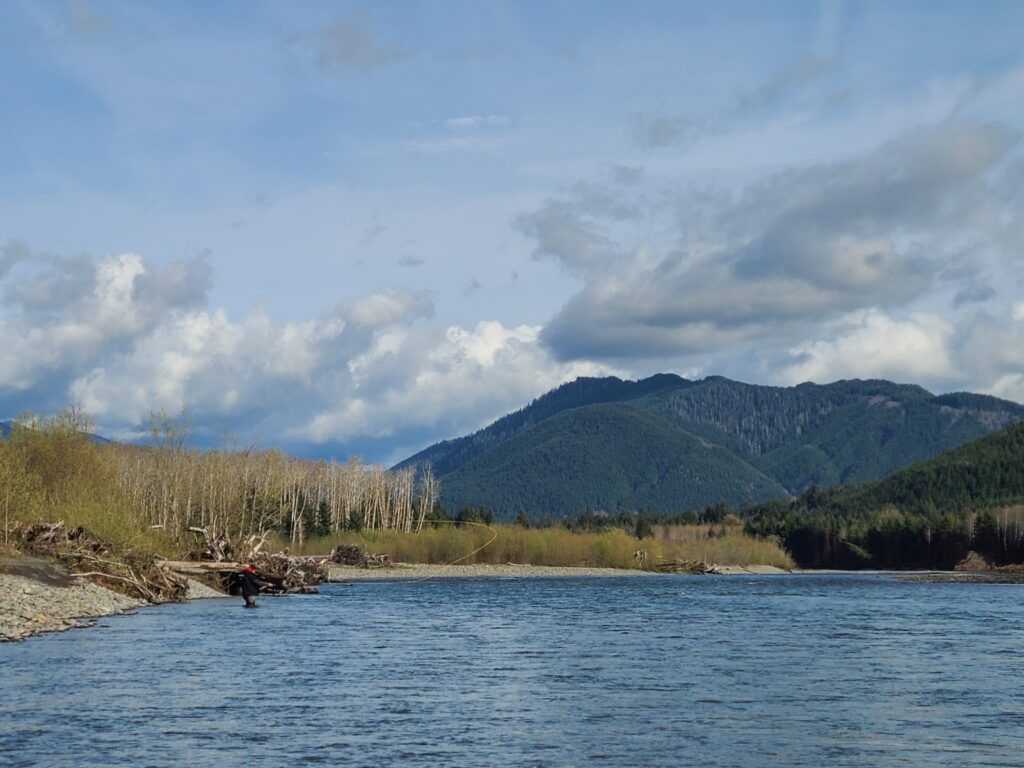
Above: Steelhead fishing on the Hoh River Image: Jonathan Stumpf/TU
Carp Bill (HB 1226)
A quirk of Washington’s law was the carve out of three aquatic species that did not require anglers to possess a fishing license to participate in fisheries: carp, eulachon, and crawfish. This is a contrast to all other fish species, where the Department has discretion around licensing.
A carryover from the previous session, this bill removes that exception and standardizes regulations around licensing. While important for all three species for different reasons, this was especially important in the case of carp, where poachers could (and anecdotally had) avoided tickets when caught fishing without a license by claiming they were fishing for carp, when obviously not doing so. We were successful in working to pass this legislation this year for all three species, and hopefully reduce incidences of poaching in Washington.
6PPD (tire chemical) Classification (SB 5931)
Just a few years ago, groundbreaking research from the University of Washington and Washington State University showed road runoff of a tire chemical, 6PPD, was a massive factor to coho salmon mortality for adults returning to their natal streams. The first piece of legislation will increase the classification with the Department of Ecology of this highly toxic chemical. This accelerates the State’s process to evaluate the impacts of this chemical, and potentially regulate its use. While not a solution by any means, it is a good first step towards addressing this dangerous pollution. Stay tuned for more on this issue in the coming years. Despite some opposition from the tire industry, we were able to help get this bill over the finish line this session.
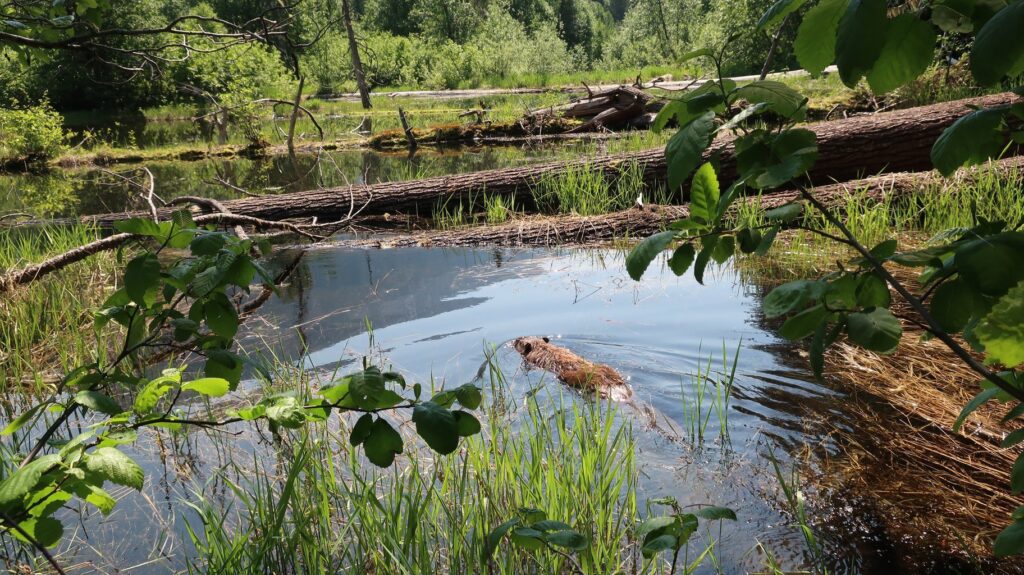
Beaver Legislation (SB 5846)
One bill that didn’t make it through this year was SB5846, sponsored by Sen. Jesse Salomon (D-32). This bill looked to establish a beaver ecosystem management plan that better incorporates the significant benefits that beaver offer to native fish species and sets up a grant program for education and technical assistance to landowners who have beaver on their property. Despite solid support, this bill struggled due to its cost in a non-budget year.
We see real value in this work. Hopefully, it is an area where we can continue to build support in the interim and work into the state budget next year.
WCRRI Habitat Funding
One final, exciting item to come from the session was a significant supplemental budget addition for the Washington Coastal Restoration Initiative, which is one of the main funding sources for much of the salmon and steelhead habitat restoration and recovery work on the Olympic Peninsula and Coast, including TU projects in the Hoh and Wynoochee river basins. Significant supplemental funding in a non-budget year speaks to the excellent work being done by TU and partners to improve one of the limiting factors to coastal fish populations.
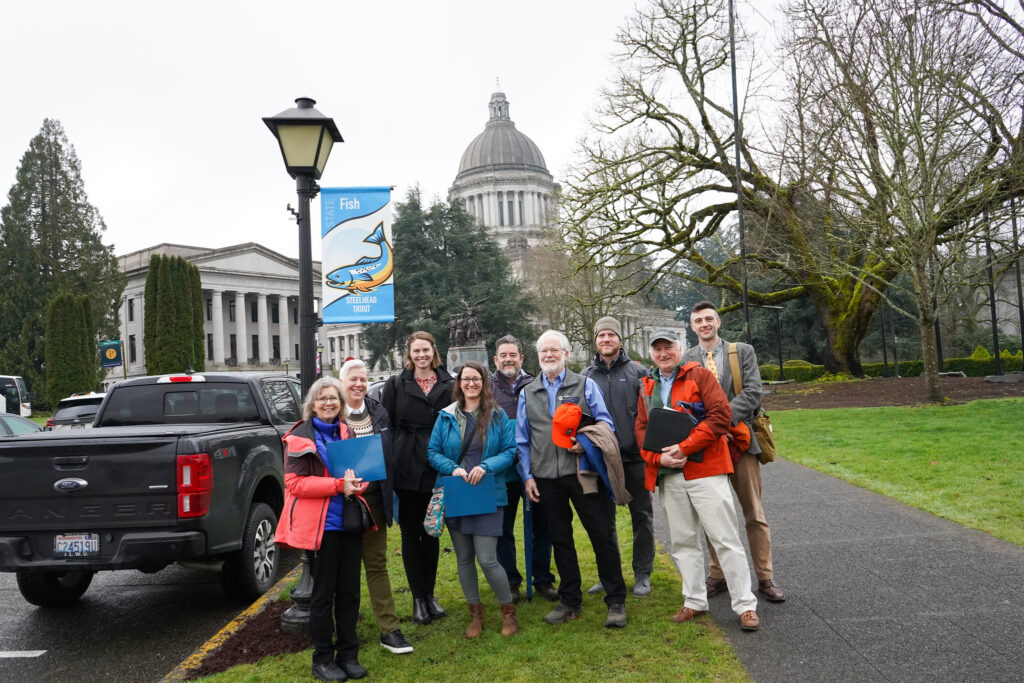
Image: Greg Fitz/TU
Thanks to Supporters
I want to thank everyone who helped advocate for fish this year, both directly with legislators and as part of our State Advocacy Day in Olympia. This year’s run of great results in the Washington Legislature are a testimony of the importance of steelhead and other coldwater fish in our state, and the hard work of those who advocate and educate state decision-makers on conservation issues. We couldn’t do it without your help!
